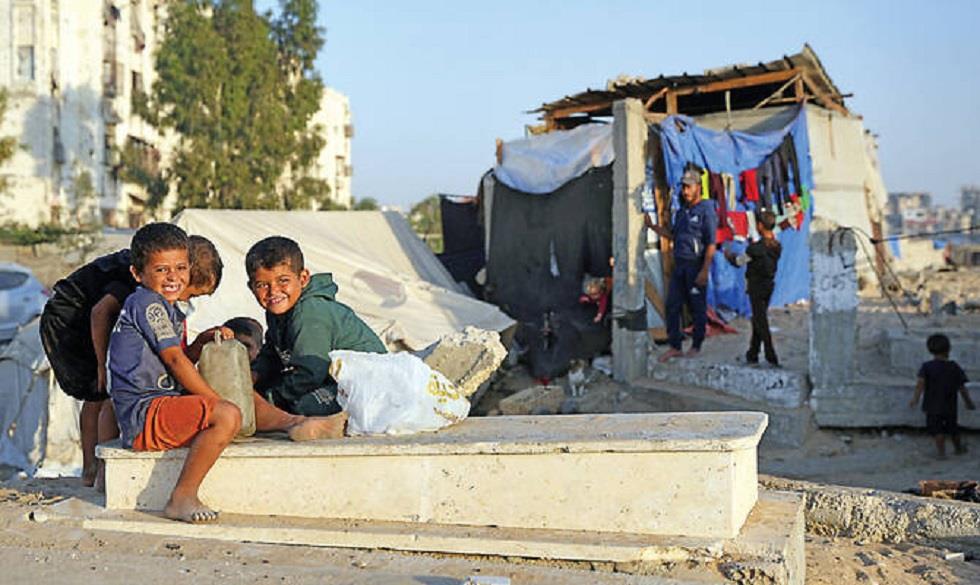
In Gaza Cemeteries, Displaced Palestinians Live Among The Dead
Children sit on a grave near makeshift tents in a cemetery in Khan Younis. (AP photo)
Khan Younis- Skeletons are neighbors for some Palestinians in Gaza who found nowhere but cemeteries to shelter from the war.
Gravestones have become seats and tables for families like that of Maisa Brikah, who has lived with her children in a dusty, sun-baked cemetery in the southern city of Khan Younis for five months. Some 30 families shelter here.
A blonde-haired toddler sits outside one tent, running fingers through the sand. Another peeks playfully from behind a drape of fabric.
ADVERTISEMENTNighttime is another matter.
“When the sun goes down, the children get scared and don't want to go, and I have a few children, four small ones,” Brikah said.
“They are afraid to go out because of the dogs at night, and the dead.”
The vast majority of Gaza's population of over 2 million people has been displaced by the two years of war between Hamas and Israel.
With the ceasefire that began on Oct. 10, some have returned to what remains of homes.
Others are still crowded into the strip of remaining territory that Israeli forces don't control.
Here and in other cemeteries in Gaza, there is life among the dead. A prayer rug hangs on a line. A child pushes a water jug on a wheelchair between the graves. Smoke rises from a cooking fire.
One of Brikah's nearest neighbors was Ahmad Abu Said, who died in 1991 at age 18, according to the carving on his tombstone. There is unease, a feeling of disrespect, at setting up camp here.
But there is little choice. Brikah said her family's home elsewhere in Khan Younis was destroyed. There is no return for now. Israeli forces occupy their neighborhood.
Other residents of this cemetery come from Gaza's north. They are often far from the land where their own loved ones are buried.
Mohammed Shmah said he has been living here for three months. He said his house had been destroyed, too.
“I'm a grown man, but I still get scared of the graves at night. I hide in my tent,” he said, perched on a broken tombstone and squinting in the sun.
He said he had only 200 shekels (around $60) on him when a friend took it to help bring his family to the cemetery.
The lack of money for shelter elsewhere is one reason keeping families living among the graves, said Hanan Shmah, Mohammed's wife.
With care, she washed dishes in a soapy container the size of a pie tin, guarding precious water.

Legal Disclaimer:
MENAFN provides the
information “as is” without warranty of any kind. We do not accept
any responsibility or liability for the accuracy, content, images,
videos, licenses, completeness, legality, or reliability of the information
contained in this article. If you have any complaints or copyright
issues related to this article, kindly contact the provider above.


















Comments
No comment